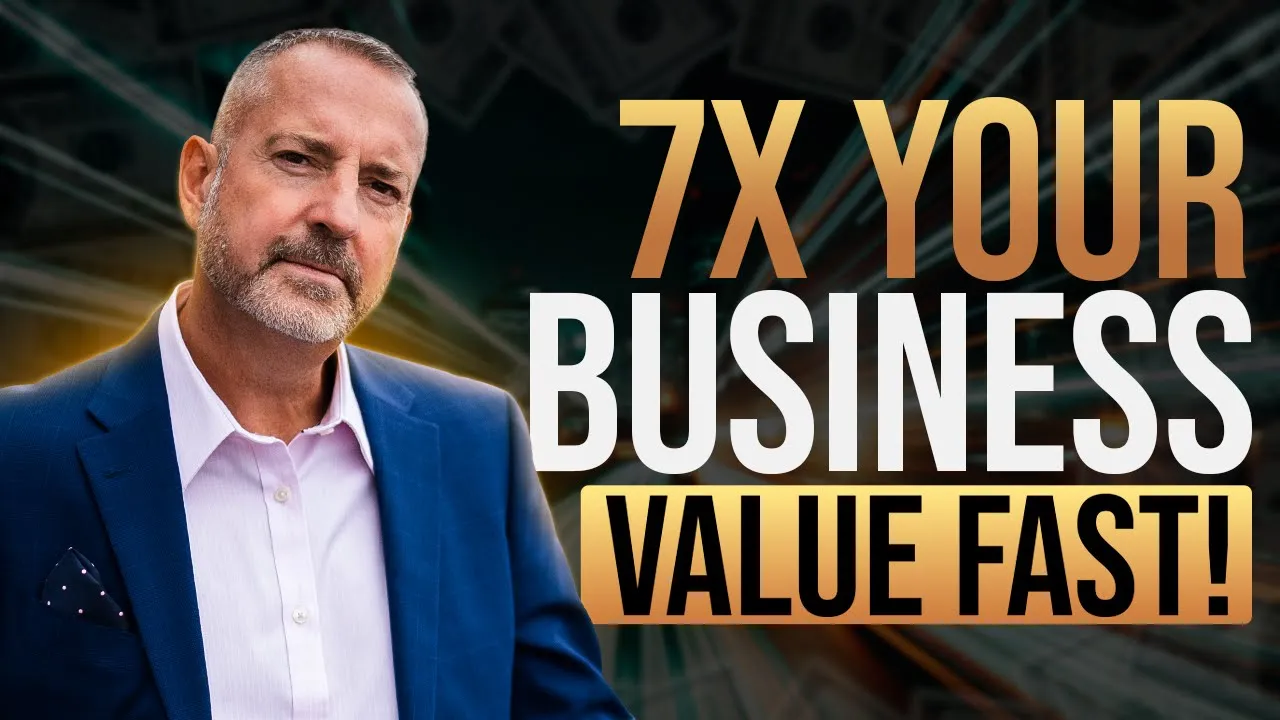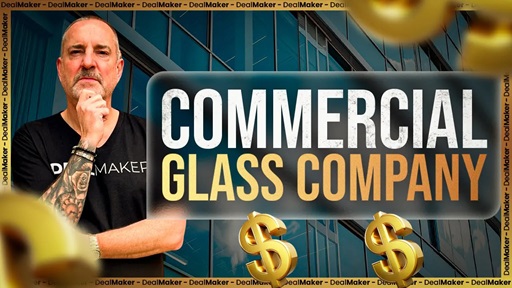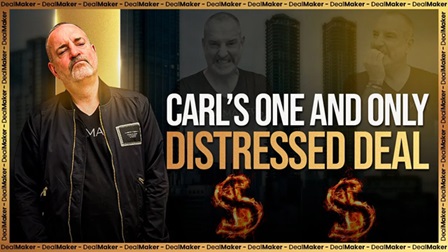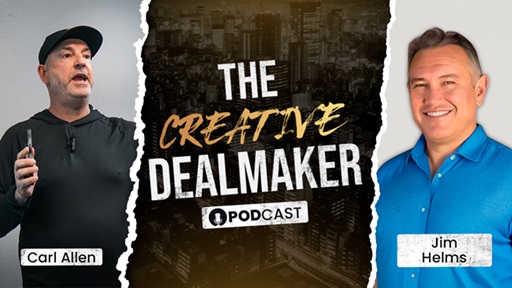How Equity Investors Can Transform Your Business Purchase
How Equity Investors Can Transform Your Business Purchase
Carl Allen discusses the importance of equity investors in business acquisitions, emphasizing four main reasons for involving them. First, some deals necessitate equity capital, especially with SBA loans where buyers need to cover a portion of the deal value. This capital doesn’t have to come from the buyer and can involve angel investors or partners. Second, equity is an expensive type of financing that dilutes ownership, so it’s critical to bring on investors who can add strategic value beyond just capital. These investors often contribute networks, industry knowledge, and sometimes skills gaps, such as financial oversight.
Third, Carl highlights the “value add” that angel investors provide, including sector-specific expertise, connections, or filling key roles, such as a CFO role, which many small businesses can’t afford. Such investors actively engage in ensuring the success of their investments, adding credibility and supporting business growth. Fourth, having equity investors creates opportunities for scaling through acquisitions like bolt-ons, tuck-ins, or a roll-up strategy, potentially with the same investor supporting multiple acquisitions. Carl stresses the investor’s role in ensuring the long-term growth and stability of the business.
Lastly, Carl briefly explains bolt-on and tuck-in acquisitions: bolt-ons maintain the acquired business’s brand, while tuck-ins adopt the acquirer’s brand, though this approach may carry risk. He concludes by encouraging questions from his audience, promising relevant answers to enhance their understanding.
Full Transcript:
Hey, guys. Carl Allen. Got a really short video for you today. Somebody asked me a question in the chat on YouTube about why do you need equity investors in your deal.
There’s actually four primary reasons why you would use an equity investor. So let’s go through them. So the first one is that some deals just need equity capital. Right?
So if you’re doing an SBA seven a loan, if you don’t have an existing business in that industry, then the SBA will require you to put down between five and ten percent of the total purchase price. So If you’re buying a business that’s doing, say, four hundred thousand dollars a year in EBITDA, and you’re paying a two and a half times multiple, so it’s a million dollar deal.
Assume there’s no adjustments for working capital or liabilities or real estate or anything like that. So it’s a million dollar deal. For the SBA to kick in, say, nine hundred thousand dollars of financing, you’re gonna have to put down at least five percent of the deal, sometimes ten. So fifty to a hundred k, and then the seller is gonna have to do the same with a stand by seller note.
Right? So they can’t touch that seller note for at least two years capital or interest. So you definitely need some some equity if you’re buying your first deal, but it doesn’t have to be your money. Right?
You can go and use an angel investor or a partner or or somebody else that can come in and partner with you in the acquisition, and then you will own the business together. And then you will negotiate, and I’ll do a separate video on that about how to negotiate how much equity you would give up in that deal.
If you’re doing an annuity deal, and I’ve done a video on annuity deals already, where you’re buying the business effectively like on a lease purchase, so you’re you’re paying for the business over an extended period of time. If it’s a broker deal, then the business broker that’s listed the business, they’re on a commission when the business sells, so they’re gonna wanna get a fee when the deal closes. And if there’s no surplus cash in the business, and the broker is holding the deal up because they want their fee, then you might have to raise a little bit of equity to cash the broker out so that then you can do the deal on an annuity basis.
An annuity deal, if you don’t remember, is where you’re just paying for the business every month over an extended period of time up to ten years or even longer. So some deals require equity. Right? So that’s point number one.
Point number two is what you’ve gotta think about with equity is it’s expensive capital. Right? It’s not like a bank loan where you’re just paying it back at eight percent with with interest over, say, ten years. Equity dilutes your ownership.
Right? So going back to the previous example on number one, if you were doing that ten percent down deal, it’s a million dollar deal. Someone’s gotta kick in a hundred thousand dollars. They’re not gonna buy ten percent of the business.
It’s ten percent of the deal stack, but they might want fifteen, twenty, even twenty five percent of the equity. Because you’re not putting any money into the deal probably. They are. They’re taking the risk, so they’re gonna want that reflected in the amount of equity that they’re going to get from you.
So if you think about equity capital being expensive money to raise, then, really, it has to come, in my opinion, with some value add to the deal. Don’t just take equity capital.
Take it from somebody that can add some value to the business. Right? So they might have some gray hair. They might have some added credibility.
They might strengthen your deal by being part of your investment kind of thesis on this. So there might be from the industry. And most angel investors, they only invest in deals where they do have that value to kind of bring. So for example, a lot of the technology angel investors that kind of more invest in startups than they do established businesses that are gonna go through buyouts, which is what we do.
But they’ll invest in areas where they can plug a network into the business, they can add some value, they know the industry, they have connections that they can bring to bear, or they might be plugging, a skills gap in the business. So a lot of businesses typically don’t have, like, a CFO, small businesses, because they can’t afford the two, three hundred thousand dollars a year to kind of hire one and bring them into the business. So a lot of angel investors, particularly if they’re former bankers or private equity people, they can plug that CFO gap on a fractional basis. Right?
So they can spend a few hours a week kind of overseeing the numbers and and giving you that that value and that credibility. So value add to the deal is really, really important. And value add to the business is also really important once you’ve acquired it. So again, you want somebody that’s got a network that they can plug into this and and somebody that can really help move the needle and grow the business going forward.
And you almost want the investor to do that, and they’re gonna wanna do it anyway because they’re guaranteeing the return on their investment with the more time that they put in to that business. And what’s also really important about having an investor is you might buy one business, and you might not stop at that point. You might have originated lots of other deals. Your first deal might be a platform for you to then go off and acquire other businesses.
So you might do bolt on acquisitions or tuck in acquisitions. A bolt on acquisition is where you buy a business and you keep the brand of the business and the reputation, but you’re still leveraging cross selling and cost synergies. A tuck in acquisition is where you’re basically changing the brand of the business you buy to the brand that you’ve already got. And that’s a very dangerous thing to do in a lot of cases.
So be mindful of that. And then a roll up, as you know, is where you’re just doing lots and lots and lots of deals within one particular industry to really grow the profit and really generate economies of scale. So those are the four reasons why you would have an investor in your deal. Number one, some deals require it.
Number two, you’ve gotta think of equity as value add to the deal, gray hair, credibility.
You’ve got to think about an angel investor adding value to the business in terms of their skills and and their network and their experiences. And then it’s having somebody in the deal already that can potentially provide additional equity capital to you as you scale up and you roll up by doing more deals. So I hope you found that useful. Don’t forget to hit like and subscribe so you can get access to all my videos as soon as I put them up.
And if, again, there’s a question that is burning for you, type it into the chat. My team will serve it up to me, and I will do that question just for you because I know it’s also gonna have value to the thousands of people on this channel. So I will see you guys soon. Until then, bye for now.




